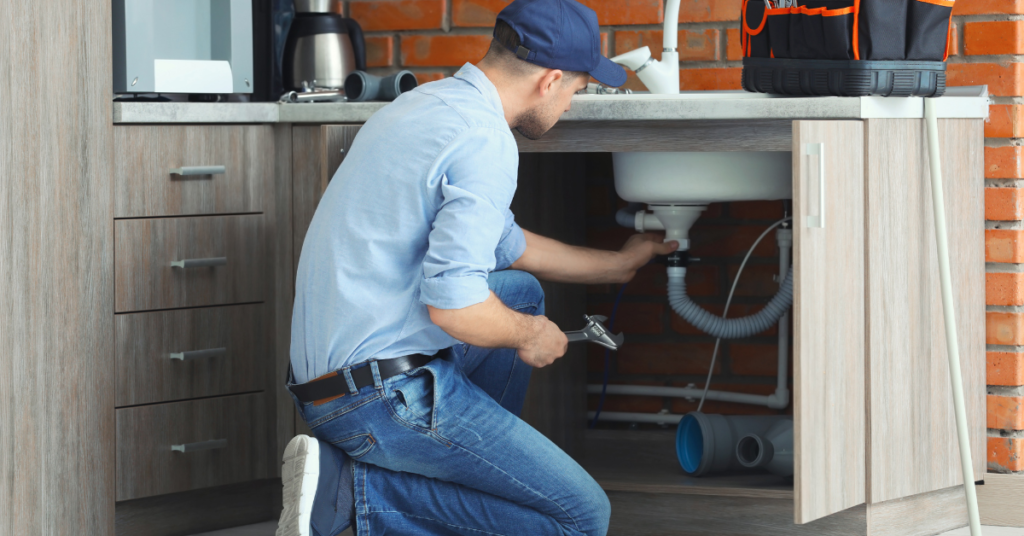Navigating the complex world of real estate can be a daunting task, especially when it comes to avoiding common maintenance pitfalls that arise when buying or selling a home. With countless factors to consider, making informed decisions throughout the process is crucial in order to protect your investment and ensure a smooth transaction. In this article, we will provide expert tips from seasoned professionals in the industry, offering invaluable advice on how to steer clear of these all-too-common challenges. Whether you are planning to purchase your dream home or sell your current property for top dollar, understanding and addressing potential maintenance issues upfront is the key to success in today’s competitive real estate market. Stay ahead of the game by learning from those who have experienced it firsthand – let our experts guide you through this intricate maze and help you navigate every twist and turn with ease.
Common Maintenance Mistakes to Avoid When Buying a Home
Purchasing a new home can be an exciting and overwhelming experience. However, it’s essential to navigate the maintenance pitfalls that can arise along the way. Here are a few mistakes to avoid when buying a home:
- Neglecting a thorough inspection: Before closing the deal, hire a professional inspector who can uncover hidden issues such as mold, plumbing leaks, or faulty wiring.
- Overlooking ongoing expenses: While making your budget for purchasing the house, don’t forget to consider recurring costs like property taxes, insurance premiums, and regular maintenance tasks such as lawn care or HVAC servicing.
- Failing to plan for emergencies: Unexpected problems may occur once you move in; therefore, it is wise to set aside funds specifically for emergency repairs or replacements if needed.
By being proactive and taking these precautions into consideration before finalizing your purchase agreement, you can avoid many common maintenance mistakes that could prove costly down the road.
Essential Home Repair Issues to Address Before Selling
Before putting your home on the market, it’s crucial to address any essential repairs that need attention. These repairs can help ensure a smooth selling process and potentially increase the value of your property. Here are some key issues to consider:
- Roof problems: A damaged or deteriorating roof can be a red flag for potential buyers. To avoid turning away interested parties, have a professional inspect and repair any roofing issues beforehand.
- Plumbing leaks: Leaky pipes or faucets not only waste water but also raise concern about hidden plumbing problems within the house. Be proactive in fixing these leaks before listing your home.
- Electrical system shortcomings: Faulty wiring or outdated electrical systems pose safety hazards that should not be left unaddressed when selling a property. Ensure all outlets work properly and hire an electrician if needed.
- HVAC malfunctions: A malfunctioning heating, ventilation, and air conditioning (HVAC) system can lead to uncomfortable living conditions for potential buyers—fix any performance issues with your HVAC unit prior to showings.
By taking care of these essential repairs upfront, you’ll position yourself as a responsible seller who has maintained their property well over time—a quality sure to impress prospective buyers during negotiations.
Expert Tips for Avoiding Costly Maintenance Pitfalls
Conduct a thorough home inspection
Before buying or selling a home, it is crucial to hire a qualified home inspector. They will thoroughly assess the property for any potential maintenance issues and provide an unbiased report. This way, you can identify any costly repairs that may be needed before finalizing the deal.
Regularly maintain your property
Regular maintenance is key to avoiding costly repairs in the long run. Keep up with tasks like gutter cleaning, HVAC system servicing, and roof inspections. By addressing small issues early on, you can prevent them from turning into major problems that could drain your finances.
Plan ahead for major expenses
It’s important to anticipate future maintenance costs when purchasing or selling a home. Take into consideration the age of appliances, HVAC systems, and roofs. If they are nearing their life expectancy, budget for their eventual replacement so that you’re not caught off guard by unexpected expenses down the line.
- Hire a qualified home inspector before buying or selling a property.
- Stay on top of regular maintenance tasks to avoid larger issues.
- Budget for future expenses related to aging appliances and systems.
Maintenance Tips for Selling Your Home: Maximizing Value and Minimizing Issues
- Keep up with routine maintenance to ensure your home is in top condition before listing it on the market.
- Fix any small issues such as leaky faucets, loose floorboards, or cracked tiles. These minor repairs can make a big difference in the overall appearance of your home.
- Give your home a fresh coat of paint to brighten up the space and give it a well-maintained look. Stick to neutral colors that appeal to potential buyers.
- Make sure all appliances are in working order. Buyers will be more likely to pay top dollar for a house with fully functional appliances.
- Clean thoroughly both inside and outside your home. Curb appeal is crucial when selling, so tidy up the yard, trim bushes, and mow the lawn regularly.
Avoid Common Pitfalls:
- Don’t neglect major repairs that are needed before selling your home. Addressing these issues upfront can save you from potential buyer negotiations or even losing out on deals altogether.
- Be transparent about any past or ongoing maintenance problems when disclosing information about your property. Hidden issues can cause legal disputes later on if not disclosed properly during negotiations. -The attic insulation should be checked since poor insulation may lead to higher energy bills. Clean gutters regularly show attention towards regular maintenance. A clogged gutter leads to water damaging wall vents. And rotting wood, which does not leave a good impression. The kitchen cabinets need attention. They should be cleaned & clutter-free. Avoid overpricing, etc…
You may also be interested in reading Timing is Everything: Considerations for Deciding if it’s the Right Time to Move

